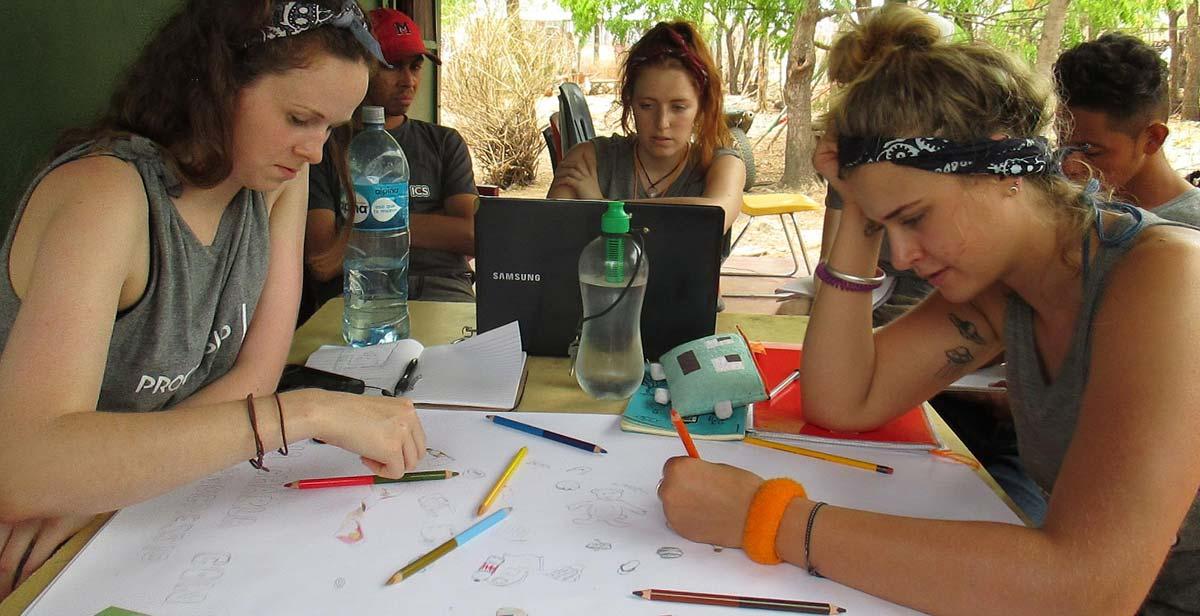Before coming to Nicaragua I thought Progressio’s ICS programme largely consisted of manual labour. My idea was that we would be sent out to different communities to build relationships and for the locals to dictate to us where they need help most. In some respects, this is the case; we will be building water filters and eco-stoves, and rather than the people themselves directing our work, it is their representative charity (ASOMUPRO) who dictate our agenda. However, a large amount of our time is spent in classroom type situations away from physical construction. Initially I found this aspect really frustrating because it doesn’t provide the tangible product of our labour. But as time has passed, I’ve begun to appreciate that without the presentations, surveying and extensive discussion behind the scenes, no matter what we build here, our message about climate change wouldn’t be adequately understood and the legacy we are attempting to generate will be lost.
Parcila is a small community with four streets of houses, which you could probably walk around in less than 30 minutes. We are the third cycle to come here and at present there is only one more cycle planned to follow us. We are working in a poverty stricken area with bucket showers, dodgy electricity, no internet and rocky dirt track roads, but that’s not to say they don’t have anything. The living conditions are different but they’re also great at the same time. I had imagined turning up to a room with rock solid beds made from brick with only a head torch for light, but no, we have proper beds with mattresses and we do actually have one light! In reality, we have everything we need and more.
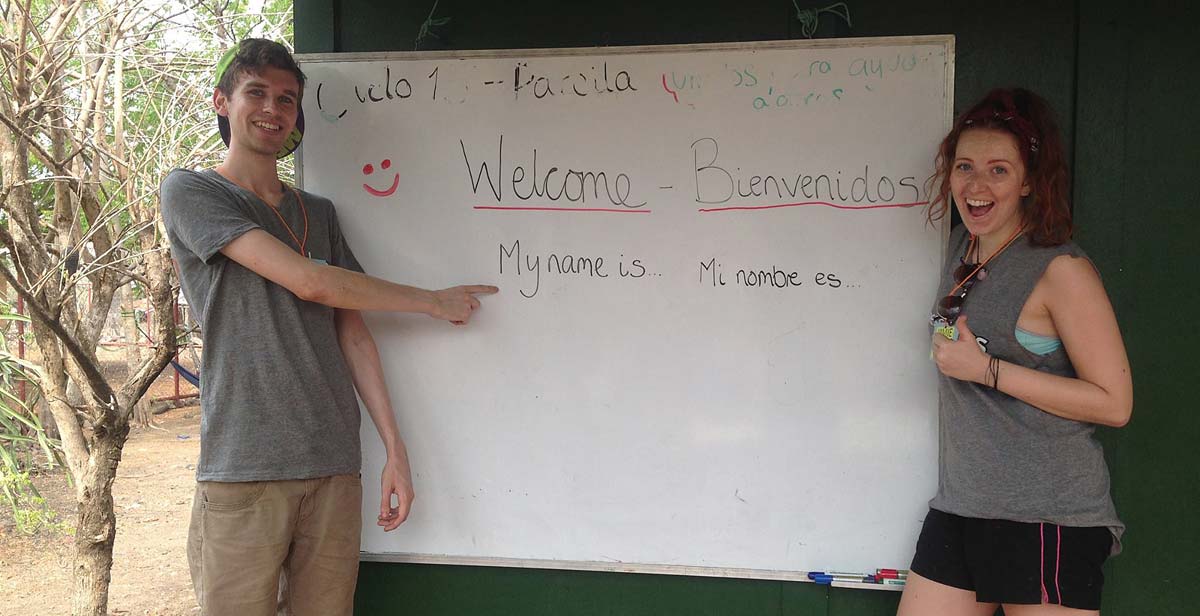
In the three weeks we’ve been here, we have delivered a presentation about rubbish and brought new ideas to locals in order to help them come up with initiatives to benefit the community. This went hand-in-hand with raising the awareness of climate change and how it is affecting not just Nicaragua but the world as a whole. We also managed to arrange a local doctor to speak about viral diseases, such as Dengue, to further educate on ways of prevention. In the upcoming weeks we are planning to focus our work more on the water filters and then the eco-stoves; deforestation is a big problem in Nicaragua and eco-stoves help to reduce the amount of wood that is needed to fuel each stove by up to 80 per cent (whilst still managing to cook the same amount of food as the previous stoves). They also funnel the smoke out of the house, whereas the current stoves are open fires, causing the whole house to fill with smoke and putting everyone’s health at risk as a result. What is more, the ground water in Parcila is contaminated with arsenic, mostly due to the nearby gold mine and the workings of the local tobacco plantation. Arsenic cannot be removed by boiling water, like some bacterial diseases, therefore we are building water filters so that the locally sourced water can be used again.
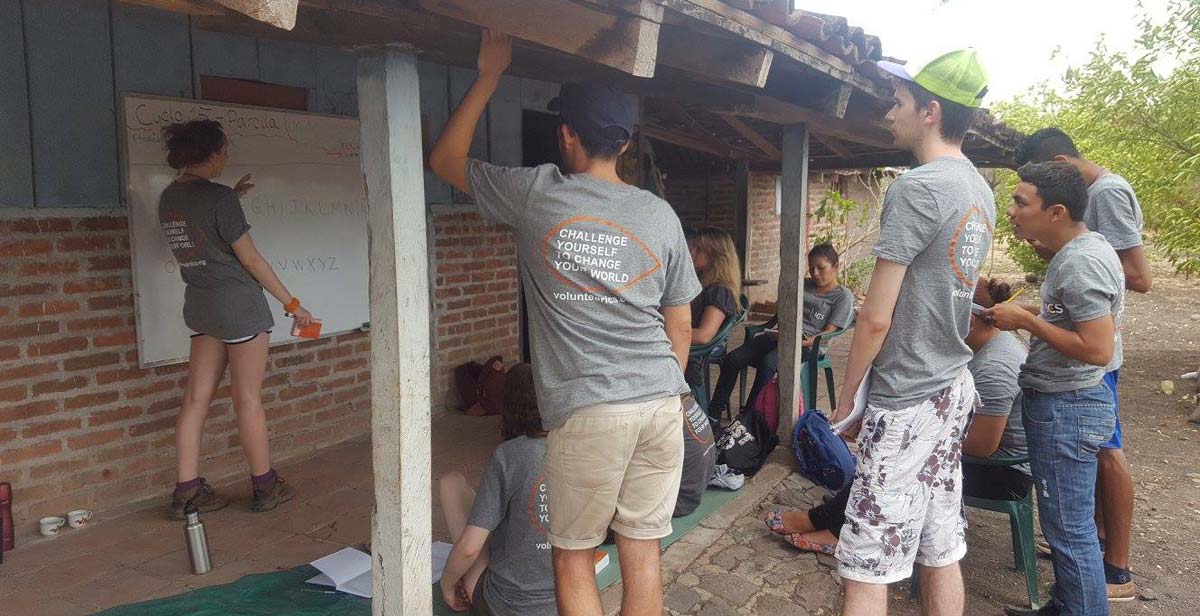
A standard day for us at the moment is an hour or two of Spanish/English lessons containing numerous games to learn basic language skills, followed by some sort of training, for example a talk on water contamination in Parcila. After this we might break for lunch around 12 – 1, then spend our afternoon preparing a presentation or community event. We spend most of the day sitting in the shade with note pad and pen in hand translating back and forth the different topics up for discussion. Sometimes it can feel like pushing a train very slowly uphill, or even like being back in primary school drawing posters for presentations and playing games, which left me feeling frustrated and impatient. Having community talks to prepare and classes to plan for doesn’t leave any physical evidence in the short term to prove that what we are doing here is benefitting the community. Why come all the way from the UK to Nicaragua just to plan a few English lessons and a presentation on climate change?
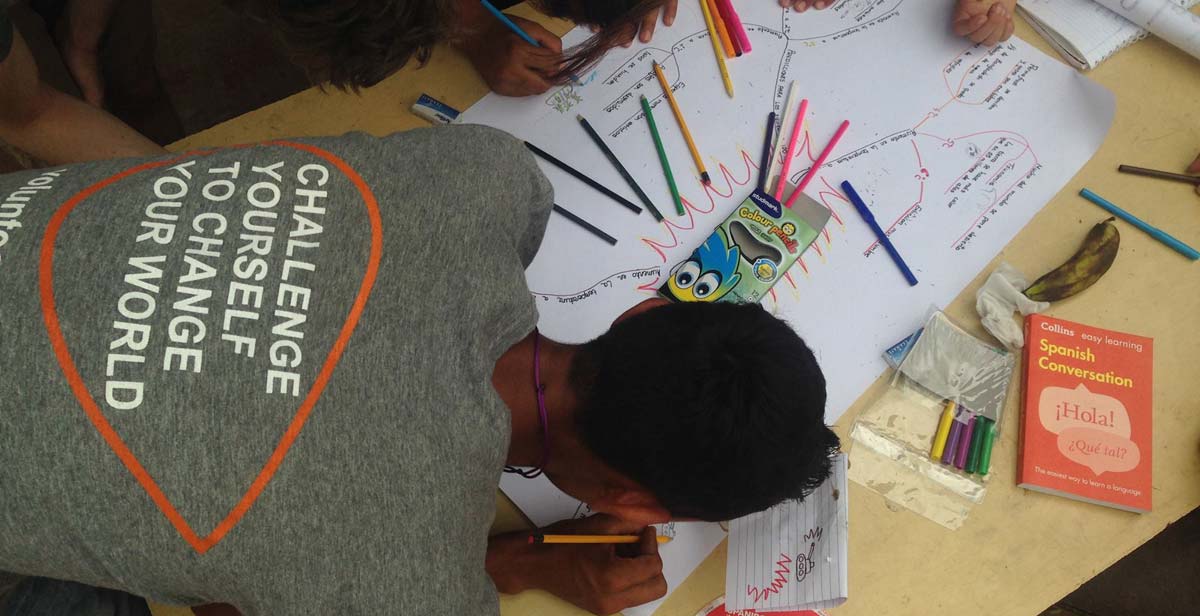
The answer to this question is slowly unveiling itself. We don’t just need to build a relationship with the community, we need to build excellent friendships so that we can understand each other and have our message about climate change sufficiently heard. We do need to build water filters and eco-stoves, however, if we just dive into a community and thrust these things upon them, would that actually be of any benefit? Probably not. As UK volunteers we need our Nicaraguan counterparts to aid our integration into the community so that we can understand things from their perspective. After we have done this, together as a team we can show the rest of the community the reasons behind using a new eco-stove, for example, as well as the reasons behind water shortage and contamination. As foreigners, we can also emphasise the impact climate change is having globally, whilst working alongside the locals makes our presence here less invasive. Numerous presentations, survey and community events are essential for building a rapport with the locals so that we can discuss how everyone as individuals can make changes in their day-to-day lives to work towards sustainability as well as learning to adapt in the new climate. Furthermore, the development and education this process provides for the national volunteers is beneficial because not everyone can afford higher education. Even learning computer skills whilst preparing a PowerPoint or creating a blog is something that most of them have never done before.
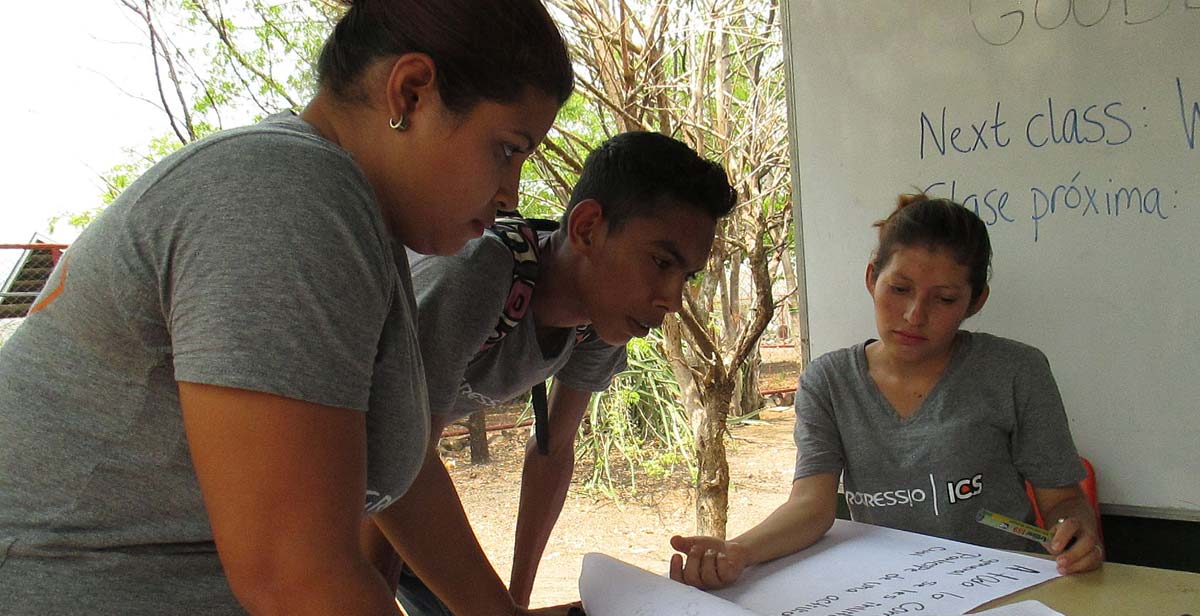
Overall, despite the work we are doing here being slightly different from what we’d imagined, after spending our third week with our community we are beginning to appreciate the importance of every step.
International development is a slow process, but it is still essential progress in the right direction. When we leave here we hope to have provided the community with the tools and knowledge to help the environment, as well as personal development opportunities for the national volunteers. All of the work we are doing behind the scenes and away from the physicality of building is imperative to constructing a new outlook and understanding for our environment. So far we are learning everyday from our community on better ways to live our lives and to be more proactive individuals. We are all a very small part of a large machine working towards a vital change.
Written by ICS volunteers Jamie-Louise Morrison and Rebecca Walker


